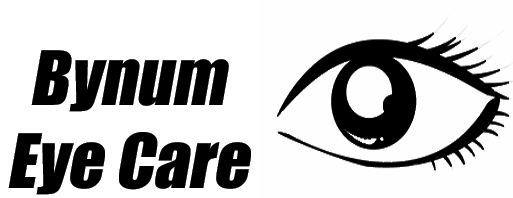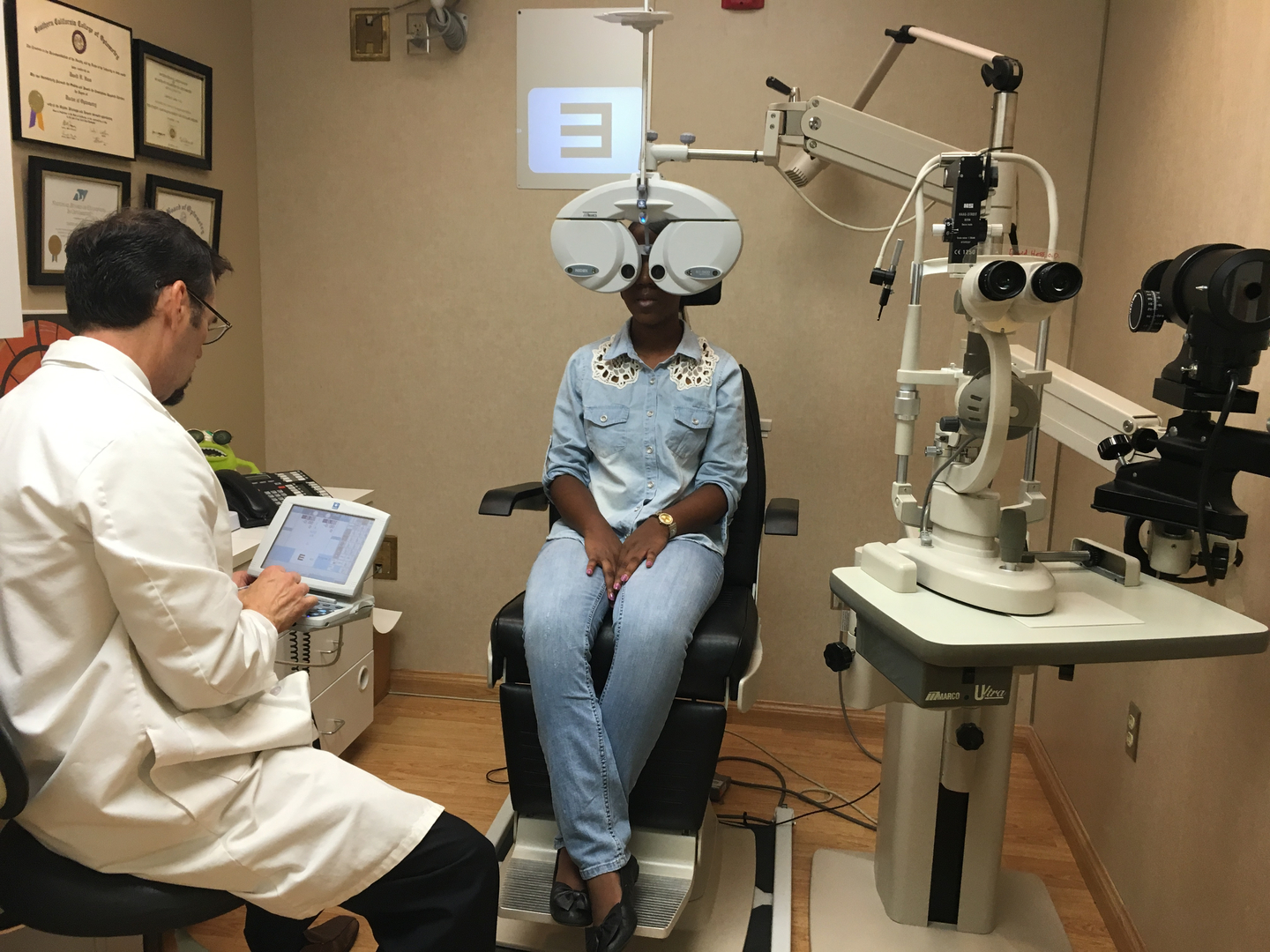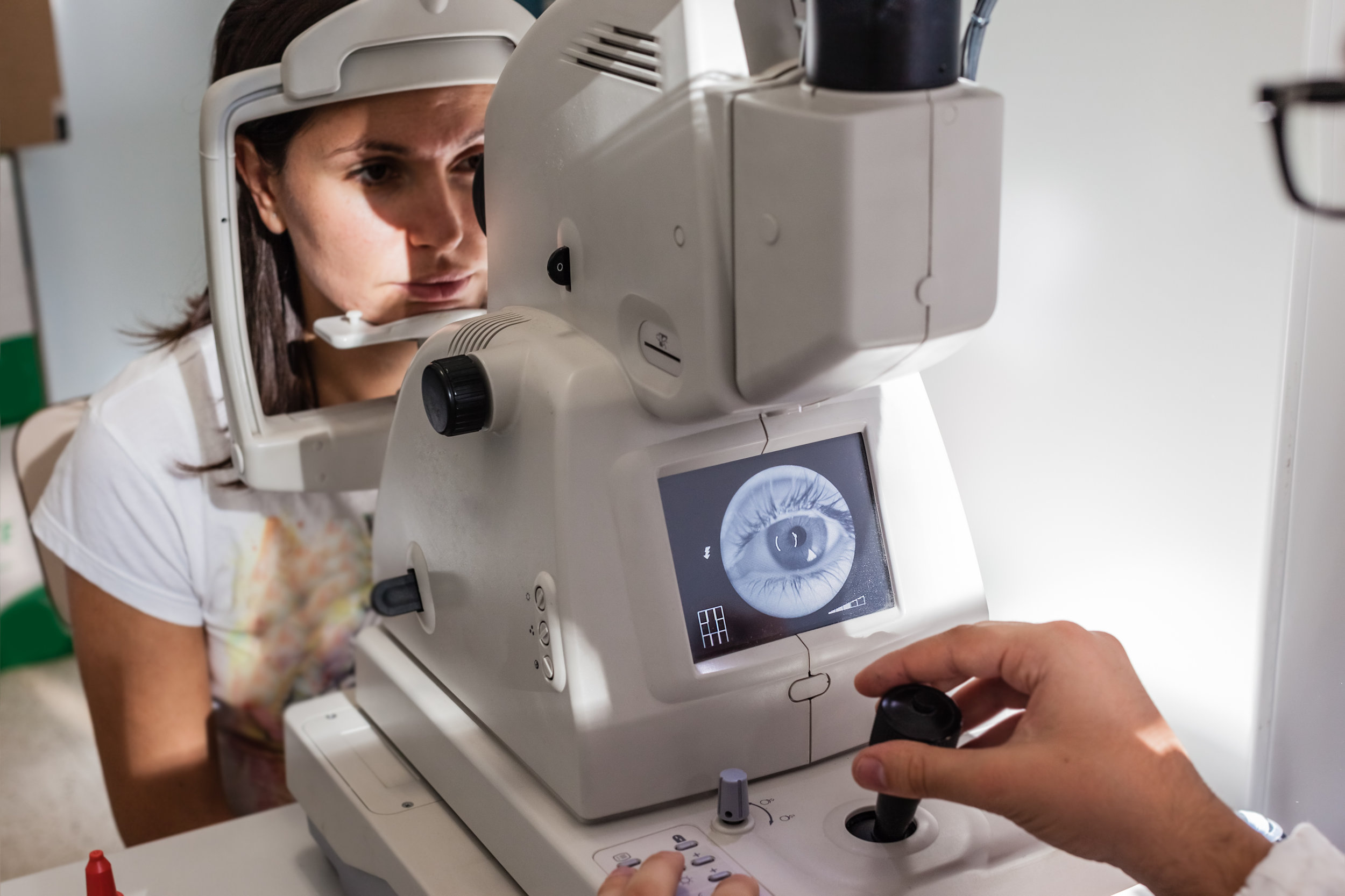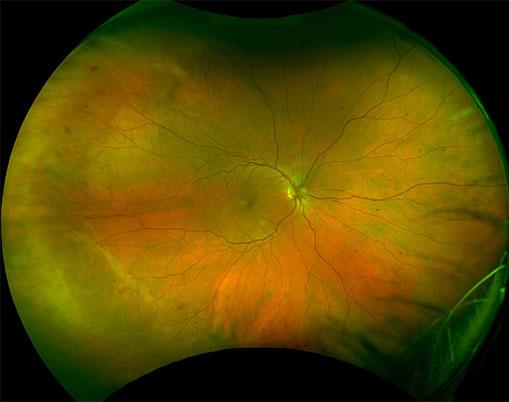

Routine Eye Exams
Comprehensive eye exams by an optometrist are an important part of caring for your eyes, vision, and overall all health. At Bynum Eyecare, our comprehensive eye examinations include, but not limited to, spectacle prescription, dilation, visual field, auto-refractor, and thorough eye health examination and glaucoma testing for all ages.

Senior Eye Care
Vision changes occur as you get older, but these changes don’t have to affect your lifestyle. Because many eye diseases don’t have any early symptoms, you may not notice the changes to your vision until the condition is quite advanced. Annual eye examinations with your Bynum practitioner will enable you to remain aware of the warning signs of age-related vision problems.

Contact Lenses
If you are a contact lens wearer, your contact lenses should feel comfortable and allow you to see well. If they don’t, schedule an appointment for your Bynum eye doctor to re-check your eyes and lenses. Our contact lens evaluations include fitting, follow-up and training for new wearers and comprehensive re-evaluations for experienced wearers. We fit single vision, bi-focal, mono-vision, toric, RGP and specialty contacts fittings (keratoconus, corneal transplants, trauma).

OCT
Optical Coherence Tomography (OCT) is a non-invasive imaging test using light waves to take cross-section pictures of your retina. With an OCT scan, your practitioner will be able to see each of the retina’s distinctive layers, allowing your practitioner to measure each layer’s thickness. These measurements help with diagnosis and treatment guidance for glaucoma and diseases of the retina, such as age-related macular degeneration (AMD) and diabetic eye disease.
Depending on the overall health of your eyes, your Bynum Eye Care practitioner will decide if your pupils need to be dilated with dilation drops prior to the exam.

Optomap
An Optomap image is a scan of your retina, where the process of getting an Optomap image is fast, painless and comfortable. This process is ideal for the whole family because nothing touches your eye at any time. To complete the scanning process, you simply look into the device one eye at a time. You will see a flash of light, which lets you know the image of your retina has been taken. The image is captured instantaneously, and is available immediately for you to see your own retina.The image is
Depending on the overall health of your eyes, your Bynum Eye Care practitioner will decide if your pupils need to be dilated with dilation drops prior to the exam.
Getting an Optomap image helps practitioners detect early signs of disease or abnormalities in your retina, such as cancer, stroke, cardiovascular disease, blindness and other vision impairments.

Vitreoretinal Disease
Vitreoretinal disease is actually a group of diseases that effects the retina at the back of the eye and the vitreous fluid around it. Some of these diseases include macular degeneration, retinal tear or detachment, macular hole and diabetic retinopathy.
Any type of Vitreoretinal Disease can cause permanently diminished vision. Annual visits to your Bynum eye doctor is advantageous because it allows us the best possible opportunity to slow or stop the disease process. Treatment methods are developed based on the type of retinal damage and the severity of the condition.

Diabetic Retinopathy
One complication of diabetes that effects your vision is Diabetic Retinopathy, which is caused by damage to the blood vessels of the light-sensitive tissues in your retina. This vision problem usually has no symptoms in the beginning, but it can eventually cause blindness. Diabetic retinopathy usually affects both eyes.
The condition can develop in anyone who has type 1 or type 2 diabetes. The longer you have diabetes and the less controlled your blood sugar is, the more likely you are to develop this eye complication. If you have diabetes, see your Bynum eye doctor for a yearly eye exam.

Visual Field Test
Your visual field is how wide of an area your eye can see you when you focus on a central point. Your practitioner can measure how much vision you have in either eye, and how much vision loss may have occurred over time.
Using a visual field test, your practitioner can determine if you have blind spots in your vision and where they are. The size and shape of these blind spots can show a practitioner how eye disease or a brain disorder may be affecting your vision.

iLux
iLux allows practitioners to apply individualized targeted treatment of evaporative dry eye. This fairly new treatment applies light based heat to the eyelid, which melts the trapped oils within the glands. After the oils have been melted, compressions are performed to express oils out of the glands. By being able to view the oils as they are expressed from your glands, your practitioner will be able to verify treatment effectiveness. Many patients have described this treatment as a “warm eye massage”; the treatment only lasts about eight minutes and typically eases the patient’s symptoms for up to 6-8 months.